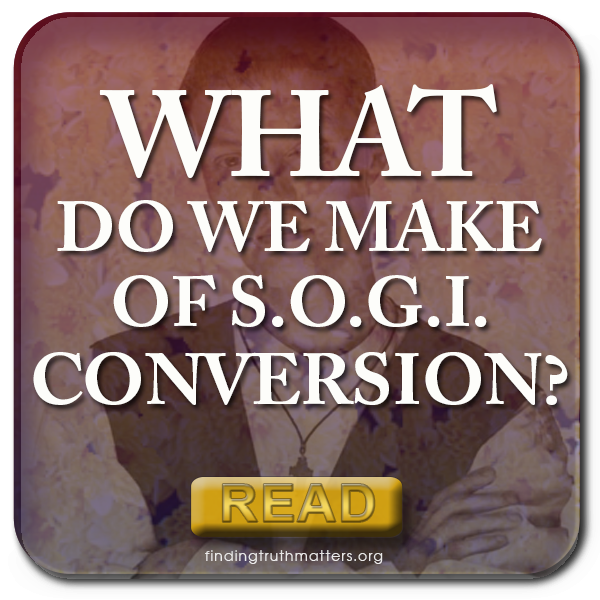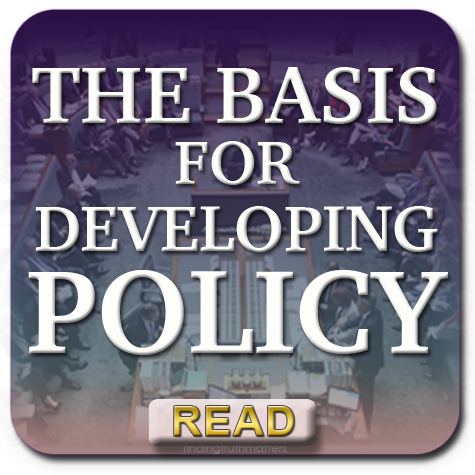
by Andrew Corbett | Jan 19, 2021 | Public_Policy
Several jurisdictions around the world have introduced SOGI (Sexual Orientation Gender Identity) Conversion laws to restrict promotion of attempts made by groups or individuals to convert non-heterosexuals to heterosexuality. In December 2020, the Tasmanian Law Reform Institute (TLRI) had several groups from among the LGBTQA+ communities approach them and refer them to the possible need to reform the law in response to SOGI Conversion practices. The TLRI accepted their reference and issued an Issues Paper (#31) and has invited public consultation on their paper which calls for the outlawing of ‘conversion practices’. There are several underlying premises in the TLRI Issues Paper, many of which I have addressed in my submission to the Institute which you can view here.

by Dr. Andrew Corbett | Aug 17, 2019 | Public_Policy
It seems that the Christian response to the claim of rapid climate change is polarised between the extremes of outright denial on the one hand and apocalyptic alarm on the other. And these responses often have more to do with theological biases rather than real science.
DENIAL…
There are a large number of Evangelical Christians who simply reject the claim that the Globe is unusually warming. Their denials often downplay the cries of scientists alarmed about the current global warming trends. These Christians scoff at such alarmism and dismiss these weather patterns as merely normal cyclical trends that have carried on this way for centuries if not millennia.

by Dr. Andrew Corbett | Jul 8, 2018 | Public_Policy
Legislators are charged with an office to formulate and review public policy as it potentially becomes legislation. They must consider arguments for and against each piece of potential legislation in order to discharge their office. Classically, there are six filters that must be passed in order for an idea to be considered ‘logical’. These are listed and briefly described below and followed by the three general categories of all legislation which should be used to determine public policy.
1. Distinguish the rhetoric from the reason.
‘Rhetoric’ sounds good. It employs emotive language designed to move a listener. It connects the speaker with their audience by using experiences common to us all…

by Dr. Andrew Corbett | Jun 7, 2018 | Public_Policy
Many of the world’s most prolonged and heinous injustices have historically gone on unchallenged because they were concealed from public view. Only when a professional journalist was able to bring the injustice into public view was the injustice stopped. We think of U.S. forces freeing Nazi prisoners in the Buchenwald and Dachau Concentration camps that shocked not just Americans, but the world when accompanying journalists reported on what they saw. (One wonders whether America would have entered the War earlier if they had seen such brutal photos earlier?)
Who can forget the 1972 Associated Press photographer Nick Ut’s photo of Kim Phuc fleeing naked across a Vietnamese bridge? When the 1973 Pulitzer Committee awarded Nick its prize, it signalled the end America’s involvement in the Vietnam War. These samples illustrate why a free-press is essential to the execution of proper justice, and just how powerful images are.

by Dr. Andrew Corbett | Sep 26, 2017 | Public_Policy
Those who advocate for legalised euthanasia (from a combination of Greek words, “eu”= ‘good’ + “athanatos”= ‘death’) argue that people experiencing “intolerable pain” should be helped to “die with dignity”. In an interview I conducted recently with a leading senior medical practitioner, I asked him about the concept of “intolerable pain”.

by Dr. Andrew Corbett | Aug 26, 2017 | Public_Policy
The world is increasingly becoming a global village. We now have entire media networks dedicated to potentially delivering news as it happens from anywhere in the world. Sadly, those of us in the more affluent parts of the world usually don’t get the most important news offered to us. Instead, we often get dished a diet of celebrity appearances, entertainment updates, political scandals, media commentary and sporting match results. To quote Neil Postman, despite the potential of our News media to inform us and even call us to action, we are “amusing ourselves to death.”






